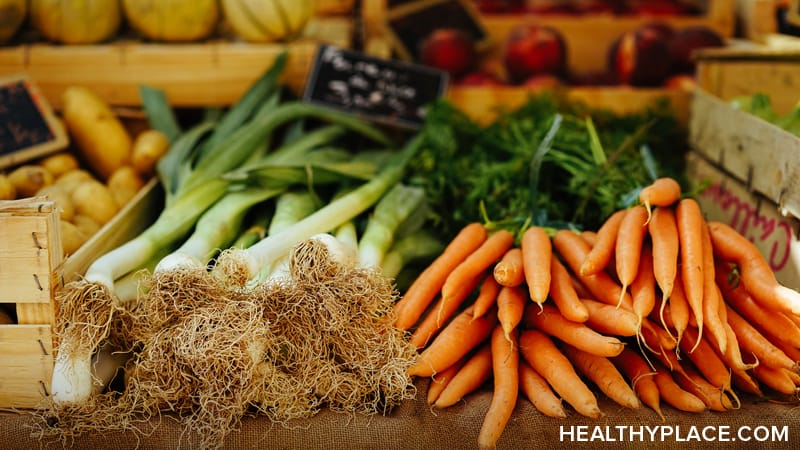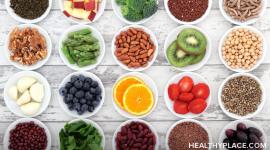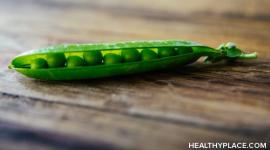Diet for ADHD: Does Food Really Make a Difference?

Following a diet for ADHD (attention-deficit hyperactivity disorder) can help minimize symptoms and promote healthy brain function. Unfortunately, many individuals are unaware of the role of food and proper diet plays when it comes to their ADHD.
Diet for ADHD: Part of Overall Treatment Plan
ADHD is a brain disorder characterized by a pattern of inattention, impulsivity, and/or hyperactivity. ADHD is one of the most commonly diagnosed childhood disorders in the United States. In 2016, more than 6 million children and teens (ages 4 to 17) were diagnosed with this disorder. Although typically diagnosed in childhood, ADHD can affect individuals of all ages. And diagnoses are certainly on the rise, increasing 42% in the past 8 years (Danielson, et. al., 2018). With the pervasiveness of this disorder, researchers are looking to new methods of managing ADHD symptoms, including exploring the importance of diet for ADHD.
Diet and ADHD: Which Foods Help with ADHD Symptoms
When it comes to identifying a diet for ADHD, studies have shown the significance of incorporating certain foods and avoiding others.
Foods to include in a diet for ADHD:
- Protein – protein-rich foods, such as lean meats, nuts, eggs, beans, and low-fat dairies have shown beneficial effects on ADHD symptoms. Protein assists in overall brain function and helps the brain in making neurotransmitters (which enable our brain cells to communicate with one another). Protein also helps prevent spikes in blood sugar, which can help manage hyperactivity.
- Zinc, Magnesium – consuming adequate levels of zinc and magnesium can help manage ADHD symptoms. Magnesium increases the brain's ability to make neurotransmitters, which can increase attentiveness and focus. Zinc regulates and improves dopamine levels in the brain (Schnoll, Burshteyn, & Cea-Aravena, 2003).
- Omega 3s – diet and ADHD research show incorporating Omega 3 fatty acids can have significant effects on concentration, impulsivity, and hyperactivity. Including Omega 3’s into a diet for ADHD can be done in numerous ways, including fish, flax seed, chia seed, walnuts, or an omega 3 nutritional supplement.
- Ginkgo Biloba – for decades, gingko biloba has been recommended for those looking for a natural remedy to improve memory and mental acuity. In recent years, diet and ADHD research has shown improved symptoms for those using gingko biloba as part of their ADHD management.
When determining a healthy and effective diet for ADHD, it is essential to know which foods may aggravate ADHD symptoms. This can allow individuals to make educated choices regarding foods to steer clear of (or at least decrease consumption of).
Foods to avoid on a diet for ADHD:
- Sugar – an individual with a high sugar diet and ADHD may notice an increased occurrence of hyperactivity. Yet there is an important distinction between what one might refer to as “good” and “bad” sugars; the “bad” meaning refined sugars. The refined sugar is that which is found in many packaged cookies, candies, and soda. Consuming refined sugar causes a flood of glucose to the brain, which can lead to the “crash” that often follows a sugar high. Long-term consumption of refined sugar can lead to problems in memory and information processing (ADHD and Sugar: How Sugar Affects Your ADHD Child’s Behavior).
- Caffeine – caffeine is a stimulant, which means it arouses the central nervous system and increases dopamine in the brain. For some, this surge in dopamine aids in fighting the effects of fatigue and increases energy. While caffeine elevates energy levels, it can also have a substantial effect on sleep. Individuals with ADHD who experience sleep deprivation may also notice forgetfulness, difficulty managing emotions, and increased irritability. Eliminating caffeine is an essential part of a diet for ADHD (ADHD and Caffeine: The Effects of Caffeine on ADHD).
- Frozen fruits and veggies – although fruits and vegetables are an integral part of any healthy diet, many frozen fruits and vegetables have been treated with pesticides or other forms of insect control, which have been shown to increase neurologically based problems seen in those with ADHD.
- Artificial additives and colorings – some studies have identified a connection between artificial food dyes and ADHD hyperactivity. Most food items have these in the ingredients listed on the package. Unfortunately, items like toothpaste, vitamins, fruit snacks, cake mixes, and gelatin powders may not have the artificial colorings listed, yet still may contain them.
Although diet alone is not the sole driving force behind the many symptoms of ADHD, it plays a substantial role. Following a diet for ADHD may help decrease difficult symptoms and contribute to overall well-being and quality of life.
APA Reference
Jarrold, J.
(2021, December 20). Diet for ADHD: Does Food Really Make a Difference?, HealthyPlace. Retrieved
on 2024, November 20 from https://www.healthyplace.com/adhd/food-and-adhd/diet-for-adhd-does-food-really-make-a-difference



